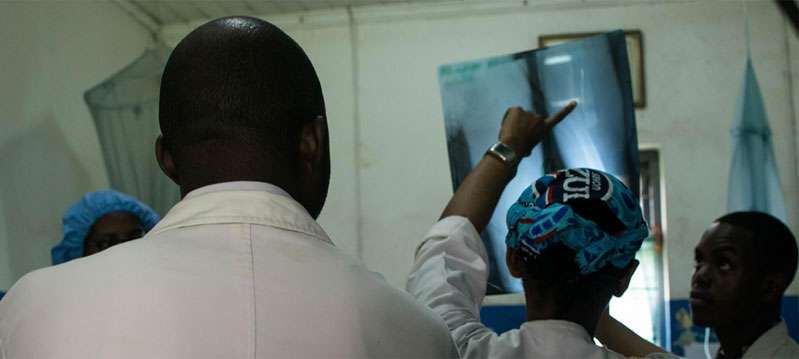About PASE

Program for the Advancement of Surgical Equity (PASE)
Surgery is an indispensable part of healthcare, yet more than 5 billion people worldwide lack access to essential and emergency surgical care. The global burden of surgical diseases is a significant public health problem that disproportionately affects vulnerable populations in low-resource environments. Injuries alone account for more fatalities than HIV, malaria, and tuberculosis combined. This unmet surgical need and lack of access to quality surgical services is contributing to global disparities in death and disability.
Recently with the COVID-19 pandemic, the long-standing issue of health disparities acutely came to light. In reality, chronic disease, firearm violence, and poor access to care has been the reality in the United States for our communities of color and other disadvantaged groups such as people suffering from mental illness. Access to care and providing whole person care are critical in creating health equity and breaking down structural racism. Program for the Advancement of Surgical Equity (PASE) is focused to be part of the solution by addressing structural racism and the social determinants of health in the US. Surgery and access to trauma care is a right, not a privilege. Through programmatic development, advocacy, and evaluation of our efforts, PASE works in partnership with our communities so that each person is given the opportunity to thrive.
As surgery assumes an integral role in developing safe and cost-effective healthcare systems, the public health community can no longer ignore the burden of surgical diseases worldwide. The Program for the Advancement of Surgical Equity (PASE) was established in 2019 with the mission to reduce surgical disparities both locally and globally. At PASE, we believe surgical equity can be achieved through rigorous research, education, and advocacy. We seek to support academic collaborations and capacity-building initiatives to strengthen surgical systems in low- and middle-income countries (LMICs) and address social determinants of health in marginalized communities. We are also focused on preventing injury locally through evidence-based violence prevention programs, improving transportation infrastructure, and bringing mental health to the forefront of trauma care. Our partnerships with healthcare providers, community organizations, and public health agencies are central to our efforts to address the unmet surgical burden worldwide.